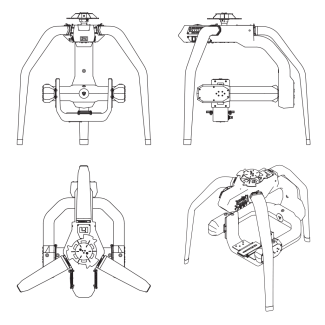At 9.3 pounds, Nokia’s Ozo VR camera is impressively compact. Not only can the device be handheld if need be, but it can also take to the skies as a drone payload. We’ve got the first look at Ozo’s take-off.
Given that Nokia is soon to offer a camera handle for Ozo, it’s clear that weight and size was an important design consideration from the start, but handheld functionality can only get you so far. When you need to cover ground—or sky, as it were—Nokia says that Ozo is ideal for professional drone photography.
See Also: Close Up – ‘OZO’ VR Camera is Classic Nokia Design, From the Future
During a closed test flight just a few days ago, Nokia and Intuitive Aerial hooked the $60,000 VR camera to the professional ‘Aerigon‘ cinema drone, which easily hoisted the camera thanks to its 19 pound payload capacity.
 Drone-capability is definitely a plus for Ozo as it means more production flexibility. Drone photography has become increasingly pervasive in the last few years, allowing filmmakers stable, inexpensive platforms for capturing aerial views which would have previously required expensive crane rigs or even a helicopter and crew.
Drone-capability is definitely a plus for Ozo as it means more production flexibility. Drone photography has become increasingly pervasive in the last few years, allowing filmmakers stable, inexpensive platforms for capturing aerial views which would have previously required expensive crane rigs or even a helicopter and crew.
See Also: Nokia Reveals 7 Accessories for OZO VR Camera
Stability is especially important for VR filmmaking as any tilting of the camera’s horizon can cause discomfort for the viewer. In this case, the Aerigon drone is equipped with the company’s IAG 3 gimbal which automatically stabilizes the camera payload with four brushless motors.






